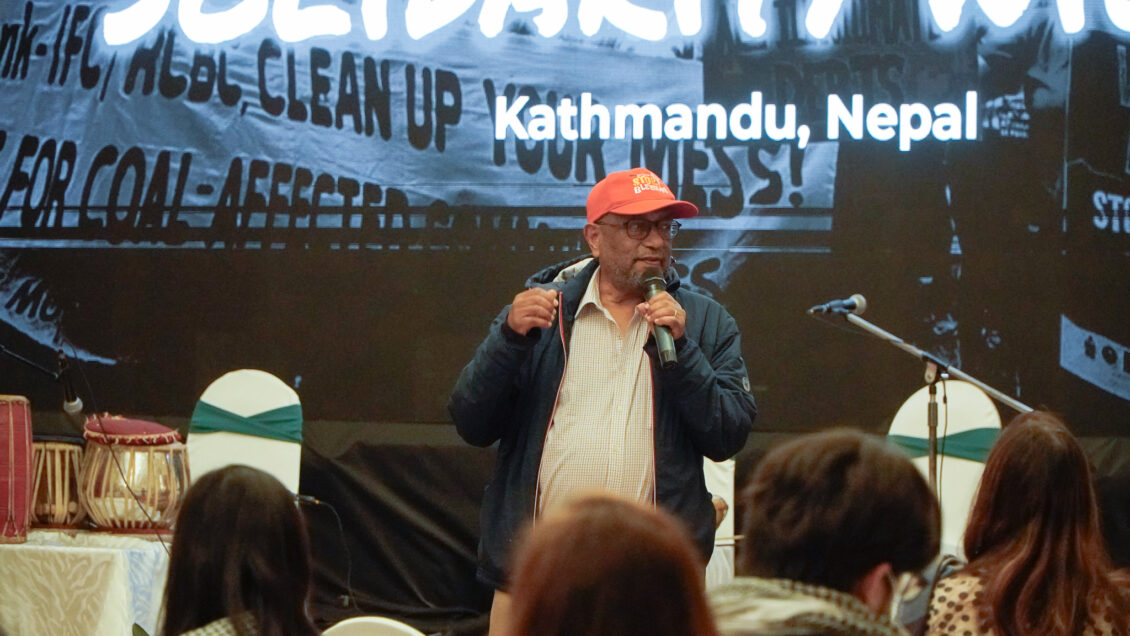GATJ Executive Coordinator, Dr. Dereje Alemayehu, speaking at the Sagarmatha People’s Assembly: Voices from the Global South.
“Tax justice and climate justice are inextricably linked,” shared Dr. Dereje Alemayehu, Executive Coordinator of GATJ at the Sagarmatha People’s Assembly: Voices from the Global South. “Mitigation, adaptation, and loss and damage from climate change all require resources. Stopping illicit financial flows and tax abuse is critical to raising public finance.”
From the 15th to the 19th of May, Asian civil society convened in Kathmandu, Nepal to collaborate across economic and climate justice movements. The Global Alliance for Tax Justice (GATJ) participated in the Sagarmatha Sambaad on Climate Change, Mountains and The Future of Humanity alongside its members from Tax and Fiscal Justice Asia (TAFJA) and other civil society organisations.
“Taxation is not only about revenue collection, it is also an instrument for regulation and reparations. Instead of subsidising the fossil fuel industry by an annual 7 trillion USD, governments must enact tax policies that support the sectors and people which need it and penalise the sectors which contribute to ecological collapse,” shared Alemayehu. Speakers went on to highlight the importance of Common But Differentiated Responsibilities (CBDR) and the need for the Global North to tax their polluters and deliver on their climate finance obligations to the Global South.
Multinational corporations and the rich continue to profit from polluting industries while the Global South, and specifically grassroots communities, who have done the least to contribute to the climate crisis, bear the brunt of its effects.
“Grassroots voices must be present in national and international policy-making,” shared Dr. Arjun Karki, RRN Chairman, TAFJA Co-Coordinator and GATJ CC Member at the Sagarmatha People’s Assembly.
Many of the same polluters who have historically caused the climate and broader ecological crises abuse loopholes in the out-of-date international tax system to avoid paying their share in taxes, stashing trillions in tax havens that could have been used to fund quality public services, a key component of climate action.
Currently, UN Member States are coming together from now until mid-2027 to negotiate a UN Framework Convention on International Tax Cooperation. The process was initiated by the Africa Group with the support of the G77 precisely because the outdated international tax rules fail to respond to present-day needs. The Framework Convention will include commitments on a fair allocation of taxing rights, effective taxation of multinational corporations and high net-worth individuals, and sustainable development.
“It’s time to deliver debt-free climate finance. A UN Tax Convention, which will address illicit financial flows, tax abuse by multinationals and the rich, and sustainable development is a key piece of this. Nationally, we must pressure our own governments to deliver a robust Framework Convention as well as implement progressive tax policies that hold historic emitters responsible,” commented Jeannie Manipon, TAFJA Co-Coordinator and GATJ CC Member.
